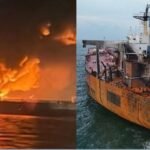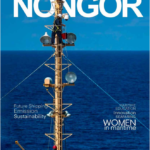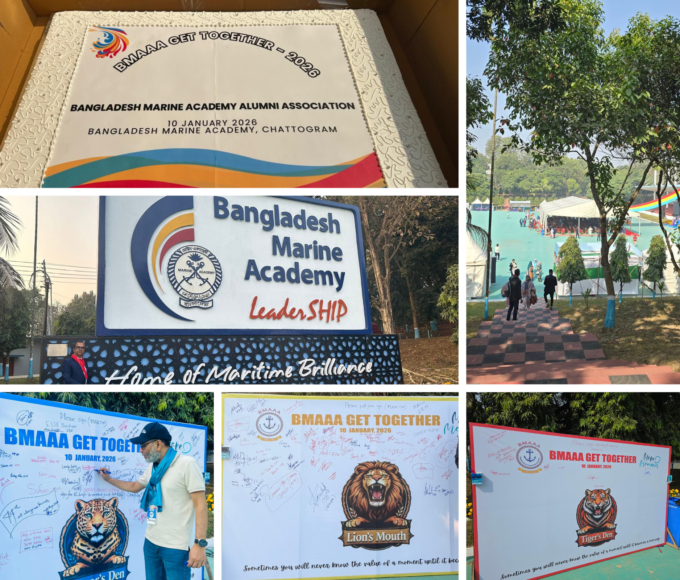In the pre-historic days, trade used to be conducted by sailing ships. So there was no question of marine pollution. Technology was primitive and there were frequent loss of ships and lives. It was accepted as the peril of sea and risk involved in seafaring. Shipping has come a long way. Now faster and bigger ships operated by oil and gas are transporting millions of tons of cargoes from and to all corners of the world. Apart from domestic and national standards, it has to now comply with international standards. Ships have to maintain with standards of safety, security and protection of marine environment. That is not all; being engaged in commercial business, ships have to maintain schedule, deliver cargo on time and in good condition, take passengers to their destinations on time and in cheerful spirit. At the end of the day the ship is expected to make profit for its owners. Successful business can generate more business and provide employment not only to seafarers but also to others in many associated activities. It is a tough competitive world in which the seafarers play a very vital role.
At the very outset of this article, I would like to clarify certain terminology. The term “seaman” has been used from very early days. The term was widely used in British Merchant Shipping Act of 1894. Originally it used to mean all seafarers but later it was used to refer to deck ratings. Those days the term “crew” meant everyone employed on the ship other than the master. The ship’s complement used to be referred to as the “master and the crew”. In this respect I would like to state that it is wrong to say officers and crew because all officers other than the master are also crew. However, the International Convention on Standards of Training, Certification and Watch-keeping for Seafarers 1978, as amended has introduced three terms to bring an end to all confusion. The term “seafarer” shall mean every person employed on the ship whose services directly or indirectly contribute to the safe operation of the ship. The term “officer” shall mean those capacities identified and referred to as officers in the convention but may also include other categories that are traditionally considered as officers under national system. Top four officers (master, chief mate, chief engineer and second engineer) are referred to as “management” level officers whereas other officers are considered to be of “operational” level. The term “rating” shall refer to all other subordinate categories (other than officers). They form the “support” level of duties and functions. So, now a day we can say “officers and ratings”. It is still possible to refer to the ship’s total complement as master and crew.
Manning is an important factor in operation of ships. It has two important ingredients – sufficiency and efficiency. Sufficiency comes from SOLAS Chapter V. Every ship is issued with a Safe Manning Document (SMD) under regulation V/14-2 of SOLAS by its Flag State. This document must not be referred to as Safe Manning Certificate as SMC stand for Safety Management Certificate issued to a ship under ISM Code. SMD does not show the ideal or optimum manning for the ship. It shows the minimum manning with which the ship can lawfully proceed to sea and undertake a voyage. It is for the ship-owner to man the ship taking into consideration the requirement of the trade to make his operation profitable. The administration will have no objection for the ship to carry more seafarers than what is stipulated in SMD provided – a) there is appropriate accommodation; b) Ship’s Safety Equipment Certificate (SEC) covers such figures; c) the seafarers are appropriately trained for the job and hold relevant certificate where such is a requirement; and d) all seafarers are given proper familiarization training on joining the ship.
The second ingredient is efficiency i.e. training and certification. There is an International Convention on Training, Certification and Watch-keeping for Seafarers; and each category of personnel defined in the convention must be trained and certified under the convention. The Convention applies for deck department to all vessels proceeding to sea and for engineering department to all vessels with propulsion power 750 kW and above. The SMD will normally use the same terminology as used in the STCW convention to refer to any particular capacity or category. The STCW recognized and identified capacities with relevant regulations are: 1. Master – II/2; 2. Chief mate – II/2; 3. Navigational Watch-keeping Officer – II/1; Master & W/officer (near-coastal under 500 gt) – II/3; Able Seafarer (Deck) – II/5; Navigational Watch-rating – II/4; Chief Engineer – III/2; Second Engineer – III/2; W/keeping Engineer – III/1; Chief & Second Engineer (under 3000 kW) – III/3; Able Seafarer (Engine) – III/5; Engine-room W/Rating – III/4; Electro-technical Officer – III/6; Electro-technical Rating – III/7; Radio Operator – IV/2 and Ship’s Security Officer – VI/5. Officers’ certificates of competency must have recognition endorsement by the Flag state though ratings can be employed directly on the basis of their national certificates of qualification. The final document that entitles an officer or rating to serve on a tanker (oil/ chemical/ gas) must be issued by the Administration.
In most cargo ships, the deck officers shall perform the duties of a Radio Operator and one of them shall also act as Ship’s Security Officer. This, however, does not prevent the ship-owner from employing dedicated Radio Operator or Security Officer. The SMD of the ship may contain requirement of a Ship’s Cook though its training and qualification have not yet been detailed in the STCW convention. The SMD of a passenger ship may have a requirement for a doctor. The old style Fitter/ Motorman/ Diesel Mechanic may still be employed but in most cases they will hold III/5 certificate as AB (E/R). Ship-owner may also employ “Refrigeration & Air-conditioning Engineer” on passenger ships and refrigerated vessels. Passenger ships may have to employ additional crew to meet the requirements of Emergency Muster List but all such persons shall be trained as necessary under regulations V and VI. Cadets, Apprentices and Assistant Engineers (engineering apprentice/ cadet undertaking ship-board training) are not listed in SMD as they do not constitute essential crew (officer or rating) for the ship’s operation. There is no category known as “Ordinary Seaman” because until obtaining II/4 certificate the person remains a trainee rating and SMD does not show any requirements for a trainee. IMO guidance on manning of ships is contained in A-1047. Resolution A-891 provides guidance on manning and training of personnel working on offshore units.
Gone are the days when ships used to employ nationals of the Flag State. Outsourcing is now a common feature. Ships are manned by seafarers from different countries based on their efficiency and economy. Cheaper crew does not always mean poor quality. We must not forget that training seafarers in Philippines and Bangladesh is much cheaper than training in the United States and Germany. Air travel is now simple, quick and not so expensive. There is a new business relating to crewing of ships operated by crewing agents. IMO-SOLAS-ISM and IMO-STCW have no reference to any crewing agent. According to ISM the company responsible for safe operation of the ship is also responsible for manning and resources. While conducting audit for issue or renewal of DOC, the company must be able to show that it has proper policy and guidelines for recruitment of duly qualified and competent seafarers. If the company makes too many references to crewing agent then it makes the crewing agent an extension of the company and makes it liable to audit.
However, delegates drafting ILO-MLC realized the bitter truth that ship-management companies based in London, Glasgow, Cyprus, New York, Hong Kong and Singapore have been recruiting crew through their agents in Philippines, Indonesia, Bangladesh, Myanmar and Vietnam where the seafarers’ national administrations have no control. This prompted them to introduce the provision of Seafarers’ Recruitment and Placement Services (RPS) so that seafarers’ national administrations can exercise some regulatory control through their registration process.
ILO-MLC-2006 is a Convention that deals with seafarers’ rights and privileges. The purpose is to ensure good working and living conditions (accommodation, food, medical care, hours of rest, wages, repatriation etc.). In respect of repatriation of seafarers the Convention has some clear provisions. Each Member State shall require ships that fly its Flag to provide financial security to ensure that seafarers are duly repatriated in accordance with the Code. This obviously means that at time of registration and subsequent renewal, the Flag State would ensure that the ship has adequate/ sufficient P&I (protection and indemnity) cover for claims against the ship for crew repatriation. Such P&I policy will also cover against many other claims including environmental damage and removal of wrecks. The Convention further stipulates that if the owners/ company fail to repatriate the crew, the Administration shall do so with the right to recover the cost from the company. I know of at least one Administration that has fulfilled its obligation and repatriated the crew; and that Flag Administration is Gibraltar. As a final and last resort the Convention requires the administration of the seafarers’ nationality to repatriate the crew reserving the rights to recover the same from the ship-owner. It is at this point that the administration can use its utmost influence on RPS licensed by the administration. The Convention laid maximum possible importance on the issue of repatriation of crew.
I must also mention here that irrespective of the MLC-2006, seafarers shall also reserve the right to approach a court (where the ship may be) to arrest a ship for claims against crew wages and repatriation. The seafarers must not fail to register their claim with the court as soon as a ship is arrested by any other claimant.
The Convention has another provision calling upon all Member States to facilitate crew repatriation by allowing free passage through their territory without any hindrance and to also provide similar facility to replacement crew joining the ship. These provisions make good sense for free world shipping. Member States should implement the provisions of the Convention in letter and spirit.
————————————-
Fazlur Rahman Chowdhury <fazlu.chowdhury@btinternet.com> London, 03-July-2015
[The write is a former Director General of Shipping, Bangladesh. He is also an Ex- Deputy Chief Examiner of UK-MCA, Maritime Administrator of Gibraltar and Maritime Adviser to GOP, Kingdom of Bahrain. From the 1st batch of Marine Academy, Bangladesh]

















Leave a comment